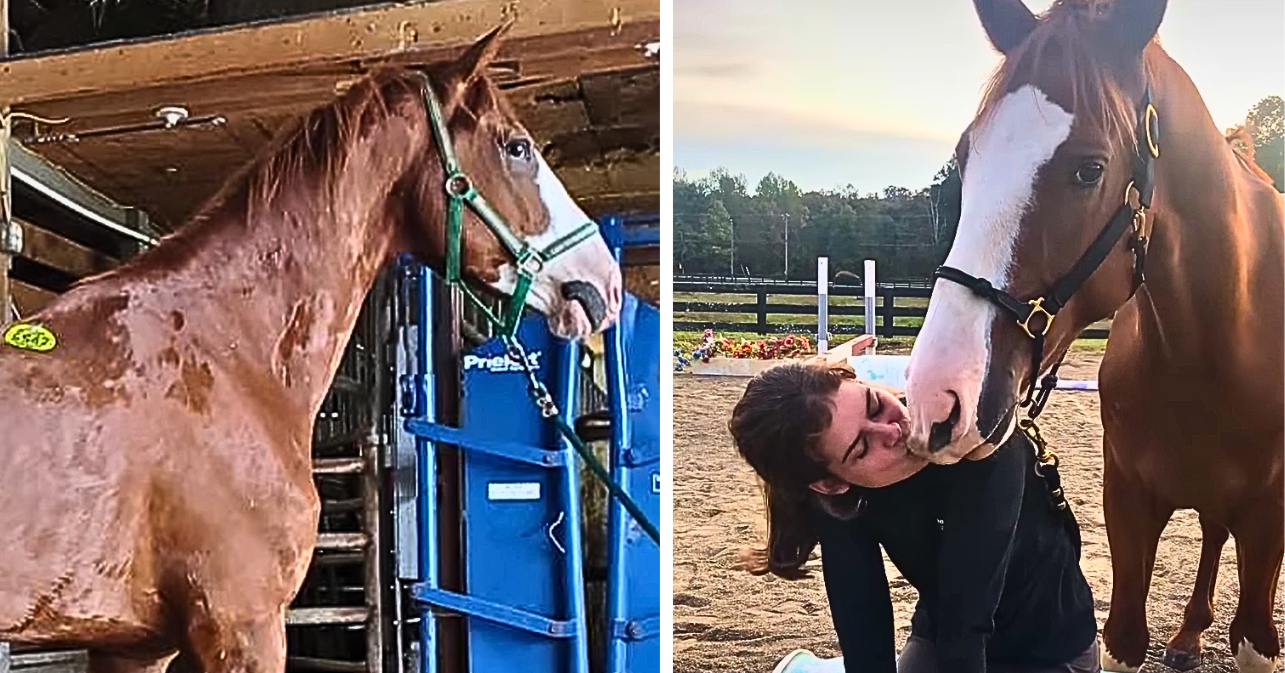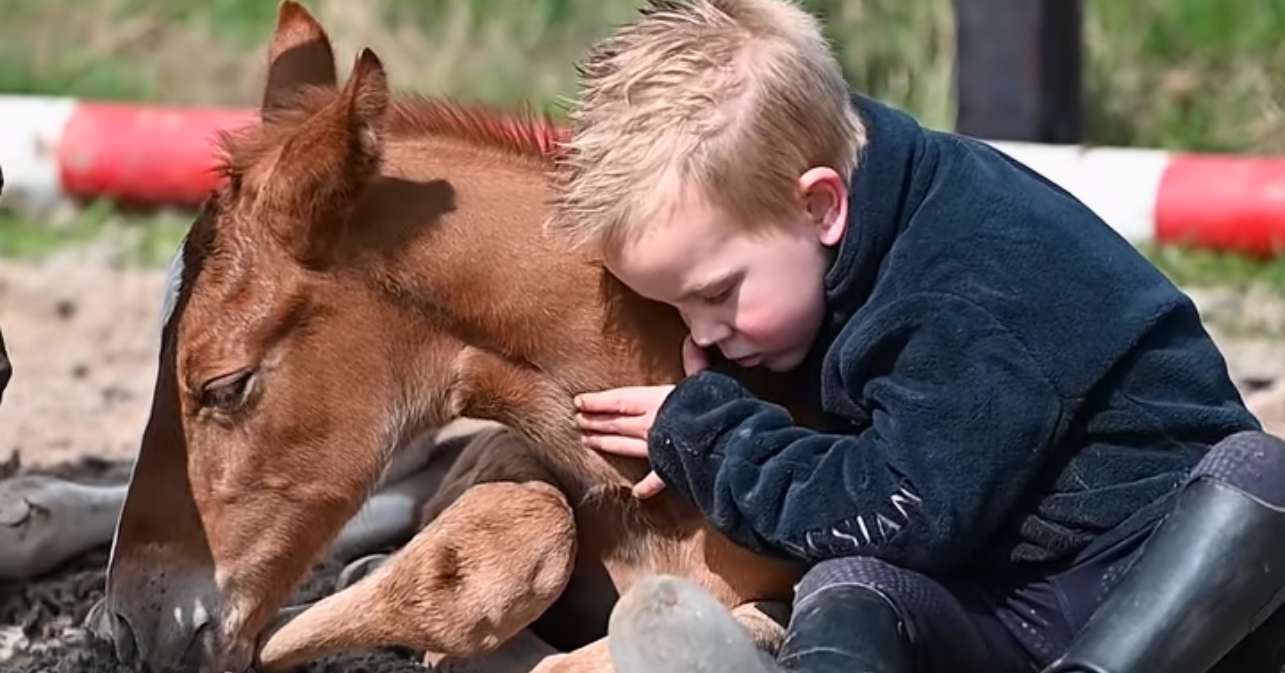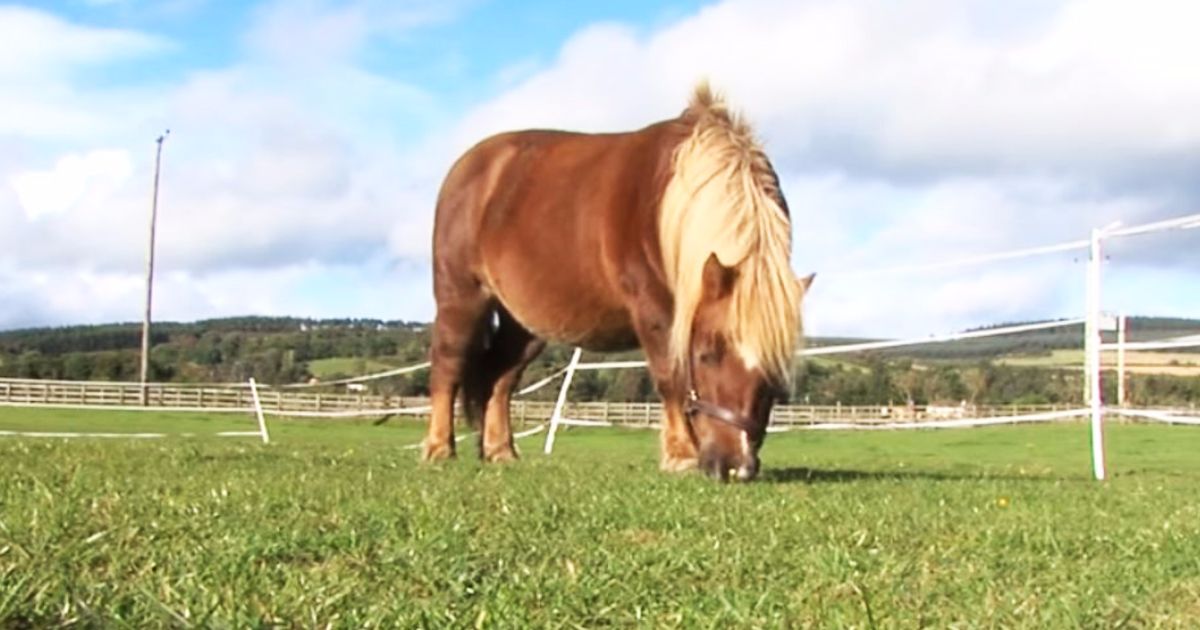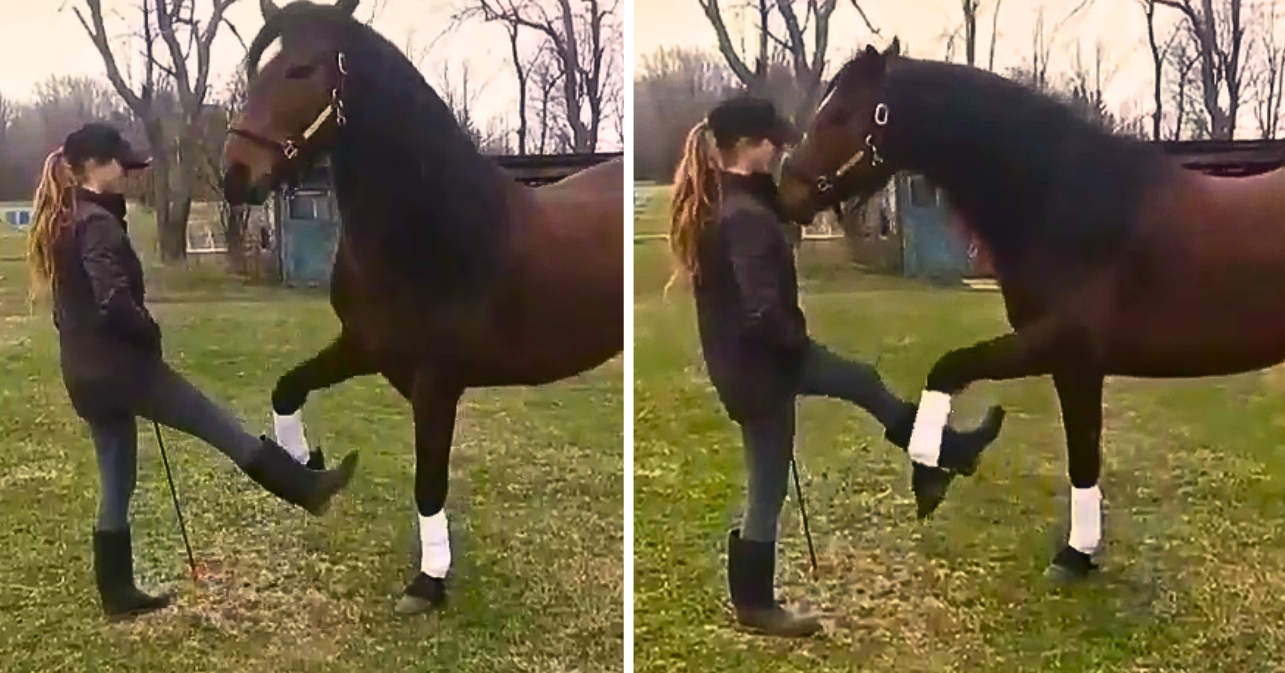A funny copycat behavior between owner and horse
Animals can offer an extraordinary amount of emotional support. Beyond the pet-owner relationship that many of us have lovingly experienced, animals are sometimes used in therapeutic settings to help people navigate challenging emotional experiences.
As we can see in this video, a horse can be a perfect therapy animal for when you’re feeling down. With its silly face mimics, this horse for sure made this girl feel better.

Equine-assisted psychotherapy incorporates horses into the therapeutic process. People engage in activities such as grooming, feeding, and leading a horse while being supervised by a mental health professional. Horses have been used for therapeutic purposes since the time of the ancient Greeks. The Greek physician Hippocrates, known as the “Father of Medicine,” wrote about the therapeutic potential of horseback riding.
Equine-assisted psychotherapy is often not the sole form of treatment but rather a complementary therapeutic service to be used in partnership with more traditional treatment. Equine facilitated psychotherapy may be just as effective with children and teens as it is with adult clients. As with adults, children can experience challenges such as trauma, anxiety, depression, PTSD, and more.

Although various animals can be used in the psychotherapeutic process, horses offer unique traits that have made them a top choice for animal-assisted therapies. According to anxiety expert Dr. Robin Zasio, horses bring the following individual/unique elements to the therapy process. But building therapeutic rapport can take time as participants working toward building trust and practicing vulnerability in session.
Horses also require work. They must be fed, watered, exercised, and groomed. Providing this type of care can also often be therapeutic. It helps establish routines and structure, and the act of caring and nurturing something else can help build empathy.
Also, quarter horses have the ideal temperament for working in therapeutic riding programs. They are calm, even-tempered, and friendly. Appaloosa and paint horses also make good therapy horses for similar reasons.”
Related Posts
-
 Rescuing a horse from the brink of death: the incredible story of a woman’s mission to heal a terrified soul
No Comments | Apr 21, 2023
Rescuing a horse from the brink of death: the incredible story of a woman’s mission to heal a terrified soul
No Comments | Apr 21, 2023 -
 Prepare to Have Your Heart Melted: Toddler and Foal’s Incredible Bond Is Truly Magical!
No Comments | May 17, 2023
Prepare to Have Your Heart Melted: Toddler and Foal’s Incredible Bond Is Truly Magical!
No Comments | May 17, 2023 -
 Pony was lame with long feet but underwent this transformation with human help
No Comments | Jan 13, 2021
Pony was lame with long feet but underwent this transformation with human help
No Comments | Jan 13, 2021 -
 Horse and Owner Take TikTok by Storm with Viral Dance Challenge!
No Comments | Apr 20, 2023
Horse and Owner Take TikTok by Storm with Viral Dance Challenge!
No Comments | Apr 20, 2023
